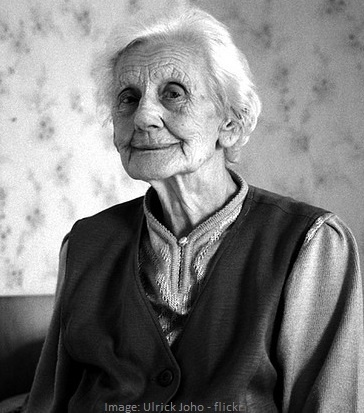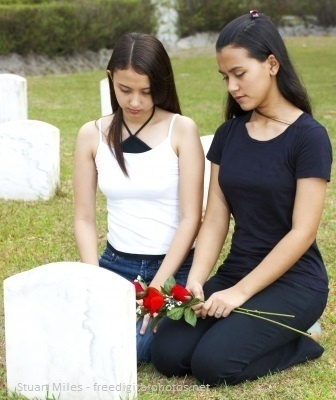
Nursing through death – by Bradley Winter RN
Last week I helped one of my residents to die peacefully and painlessly. She was dying of late stage cancer, and it had been a few months since the cancer had overtaken her body’s ability to function normally. The cancer had certainly slowed her down over the months leading up to this, but now it had spread throughout her body causing it to shut down, bit by painful bit. And there I was: the nurse responsible for her care.
A week before she died, my resident was talking to me. She was emotional, in pain, nauseated and absolutely fed up with life. She was a pragmatist, giving me snippets of her life as a registered nurse just like me, she had done what I was doing and knew what she was facing in more detail than most in her position – and that made her scared. It made me scared too. It’s rare that someone is so in tune with what they are facing on their death bed.
Five days before she died, my resident stopped talking to me. But she could still lock eyes with me and cry. She could squeeze my hand and give me a look that said “Please…”. That was all she could manage and it broke my heart. That look pushed me first through a wave of sympathy that I still feel for her, but it led to the solid rock of professional registered nurse led palliative care that I know so very well. I have worked in palliative care, I have worked with cancer and I had eased the path of many dying residents in the past and I knew what to do.
A nurse’s responsibility in this situation is simple: provide comfort and facilitate the care required to achieve this. As a registered nurse, there are things that we can do to make this happen:
1) Liaise with the GP: The input of a good GP at this point is essential. The GP writes the orders for the drugs. They do other things, but as a nurse, prescribing is the most important thing they can do for us. For someone dying a painful death like my resident, the GP must acknowledge that crushed paracetamol is no longer going to ease their pain. They have an obligation to provide you with a veritable arsenal of drugs that you can use to counter the worst of the symptoms of dying. This includes medications that cover a range of symptoms with several administration options. This is the only way. It is far better to have somewhere to go rather than hit a wall with your treatments.
2) Provide the cares needed through your team: An RN can’t do everything on their own, especially in an aged care home. You’re usually the only RN around but you have a whole team of other people who can help you. My personal care team are my comfort army – they are the hand holders, the ones that bathe and toilet the resident, the ones that feed them when they are able and then the ones that dribble water on to their tongue, just to keep their mouth from becoming dry. The care team are my eyes and ears for every escalating symptom or issue and they are the ones that are there for both me and the resident at this crucial time. The RN that uses their team for their skills and acknowledges them for it will be a successful RN.

3) Facilitate the wishes of the resident (and those of the family): Every patient is different in their death, no one ‘recipe’ will do. Know the wishes of your resident early through care planning and talk to the family. If the family are confident in your care, they will be with you the whole way through, no matter how bad it gets. They need to be warned – they need to hear the word ‘dying’, not any of those terms that dance around the subject like ‘on her way out’ and ‘becoming unwell’.
My resident died a few days later. She was resting peacefully that morning, she opened her eyes once or twice and looked calm. She tolerated the ministrations of the carers comfortably and she had no pain. She closed her eyes at ten AM and took her last breath two hours later.
And that led me to my last task as an RN looking after a dying resident……
4) Be there afterwards: I helped my team prepare my resident’s body before her family came in to say their last farewells. We washed her, removed the cannula that delivered the last doses of medications that kept her comfortable, did her hair, put her favourite comfortable dress on and crossed her hands holding a set of rosary beads worn smooth from years of night time prayer. Her family came in dribs and drabs and we hugged. We stood with arms around each other and talked about her final hours. We laughed about the times she told us of her history as a nursing student and we comforted each other knowing that we had all been there, at one time or another to provide her with the support and comfort she needed in her final days.

Nurses (Registered, Enrolled and Assistant), we are absolutely essential to the care required for a dying patient. It is intense, physically and emotionally. It is demanding on our time, especially considering we usually have other patients who need us too. But we need to be there still.
If you are in a position where you look after people who are dying, make sure you get the education and support you need to do it well. There are a huge number of resources out there that can help you. I suggest you start with www.caresearch.com.au/ and go from there.
 Bradley Winter graduated with a Bachelor of Nursing from the Queensland University of Technology in 2011. He also holds a Bachelor of Business, graduating in 2006 from Latrobe University.
Bradley Winter graduated with a Bachelor of Nursing from the Queensland University of Technology in 2011. He also holds a Bachelor of Business, graduating in 2006 from Latrobe University.
Brad completed a graduate nursing year at the Royal Darwin Hospital in the Northern Territory where he worked in Oncology, Neurology and the Emergency Department. Brad returned to Brisbane in 2013 where he commenced a career in Aged Care Nursing.
More articles by Bradley Winter on My Health Career:
- A gap in wound care research
- The world of aged care nursing
- What to do if you didn’t get into a grad nursing program
Image: dan – freedigitalphotos.net
Image: Stuart Miles – freedigitalphotos.net
Image: Ulrich Joho – flickr
